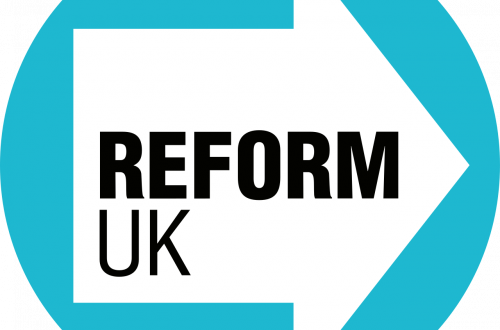This is a cross post by Aymenn Jawad Al Tamimi
In the run-up to the Tunisian Constituent Assembly elections and the aftermath that saw a plurality of seats won by the al-Nahda (Renaissance) party, you may have noticed frequent references in the media to this political organization as a “moderate Islamist” party. This is of course not the first time such terms have been used to denote Islamist political factions: recall for example how the ruling AKP party in Turkey is often called “mildly Islamist” (to borrow the Economist’s phrasing).
Unfortunately, however, such terminology can only be characterized as part of what Hussein Ibish – director of the American Task Force on Palestine – calls an “intellectually and politically indefensible rush” to portray Islamist parties as “more moderate or pluralistic than they actually are.”
Take the case of al-Nahda in Tunisia, which outperformed by a factor of two most analysts’ expectations that it would win 20% of seats at most. The party’s leader- Rashid Ghannouchi- has tried to reassure secularists of his supposedly moderate credentials by pointing to the example of Turkey,which is often viewed as a model for harmonizing secular traditions with Islamism under the allegedly pragmatic AKP.
In fact, the AKP government’s record demonstrates how the Islamists in Turkey have gradually been reversing the democratic reform process that was initiated in the first three years after the AKP’s rise to power in the 2002 elections. The aim at the time was to win EU membership for Turkey, and given the widespread support among the Turkish population back then for such a goal, as well as the fact that the military had intervened to ban the AKP’s ideological predecessor known as the “Welfare Party” in 1998, the AKP pragmatically went along with implementing the reform process.
Yet since 2005, as the EU bid process has stalled, the AKP’s authoritarian tendencies have become increasingly apparent, in accordance with a step-by-step implementation of an Islamization program also supported by the Muslim Brotherhood in Egypt. Examples of these worrying trends include wiretaps on the cell phones of political opponents, hefty “tax fines” imposed on the independent media company Dogan, which was recently forced to sell one of its three television channels to reduce the fines, and greater control of the media as a whole by pro-AKP businesses as Turkish authorities have lobbied to reduce Dogan’s share of the media market.
Meanwhile, more and more journalists and military figures have been imprisoned on flimsy allegations of coup plots. As the International Press Institute reports, Turkey leads the world in the number of jailed journalists, with 57 currently behind bars, and as analyst Soner Cagaptay points out, around half of all Turkish naval admirals have been imprisoned.
On the wider international stage, the AKP government has pushed for the Muslim Brotherhood to take advantage of the unrest in Syria, while Assad hopes to use the Kurds as proxies against Turkey by granting them autonomy, according to a report in Le Figaro. The AKP’s belligerence towards Cyprus and Israel is also worthy of note, as the Turkish prime minister has threatened to send “frigates, gunboats and…air force” against Cyprus should it go ahead with plans to exploit potentially very large oil and gas reserves in the Eastern Mediterranean’s international waters.
Coming back to Tunisia, Ghannouchi is also on record in Arabic for pointing to Hamas-led Gaza as the “model for freedom today.” The Palestinian areas are a case in point to discuss. It is of course true that Hamas was democratically elected in the Palestinian legislative elections in 2006, but Hamas’ term in power expired last year and the group has since blocked all attempts by the Palestinian Authority to hold elections.
The reason for Hamas’ behavior here is the blow to its popularity the group has suffered for its poor governance in Gaza, where Fatah was ousted from power completely in 2007 and where Hamas has established the rule of Islamic law.
Thus, one must surely concur with Ibish’s point that “it’s simply foolish not to recognize that they [the Islamist parties] remain in every meaningful sense radical and retain their totalitarian impulses. That they would like to broadly and severely restrict the rights of individuals, women and minorities in the name of religion is obvious.”
Given the significant support base groups like al-Nahda and the Muslim Brotherhood have, does it follow that we are back to the old dichotomy of “secular tyranny or Islamists”? Not necessarily. The general point to be made is that if democracy is going to work in the Middle East and North Africa, strong constitutional checks on government power, enforced by the military, together with a firm, healthy secular opposition are needed to prevent Islamists from attaining unrestrained power.
Hence, secularists can learn much from the Turkish experience with the AKP. First, the military should not be afraid to confront the government if the warning signs of Islamist authoritarianism become apparent. Unfortunately, after hundreds of arrests, the Turkish officer corps is choosing to act too late, if it is planning on any action to counter the AKP’s autocratic initiatives. In Tunisia, it is disconcerting to note that the army appears to be largely withdrawing from the political realm, while in Egypt, the army panders to Islamist sentiment, as when it facilitated an attack on the Israeli embassy in Cairo and massacred Coptic Christian protestors in Maspero, Cairo.
In the meantime, secularist parties in Tunisia and other countries need to put aside factionalist squabbling and stand together in the promotion of liberal-democratic values, while making an effort to offer a comprehensive program of policies for voters, rather than just attacking the Islamist parties for their radical records. In Turkey, the opposition has failed to get its act together for ten years, and is behaving too erratically, condemning for the pure sake of being oppositional more sensible AKP policies like the stationing of a NATO radar system.
Ultimately, the solution for reducing the appeal of the Islamist parties and eventually marginalizing them lies in reform within mainstream Islam to bring the religion as a whole in line with modern conceptions of human rights and liberal democracy- above all in separating Shari’a from the public realm- but the suggestions outlined above should stand a reasonable chance of at least keeping the Islamist parties in check and perhaps forcing them to moderate out of political expediency, even as they remain radical at heart.
Update: Secretary-General of Al-Nahda- Hamadi Jbeli, was also recently caught on film footage proclaiming “We are in the sixth Caliphate, God willing.” So much for “moderate Islamist,” then.


